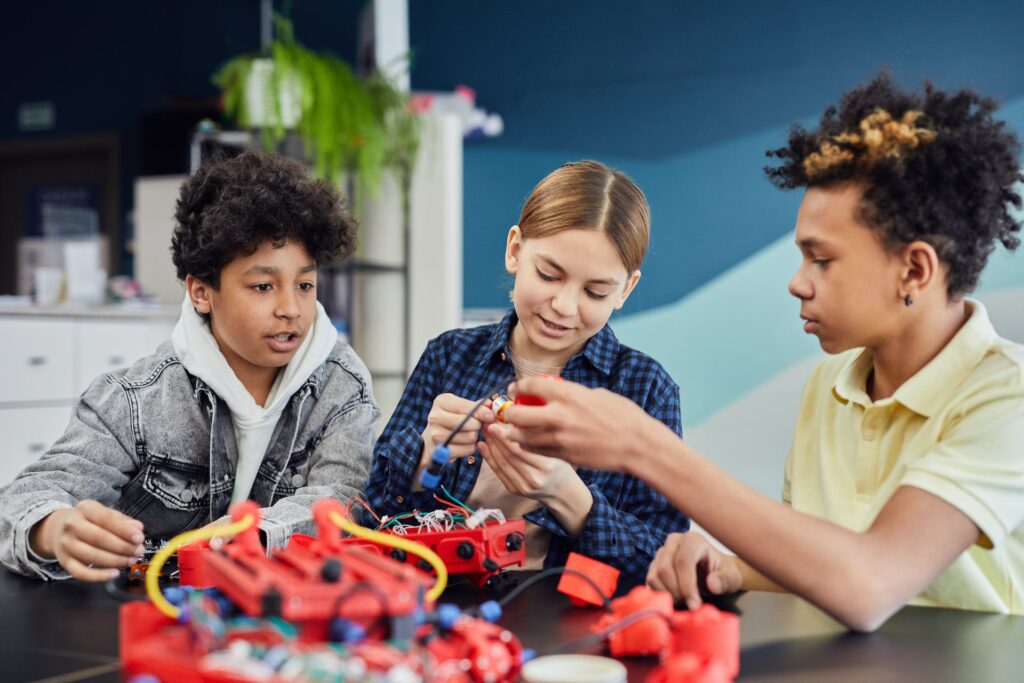Future of Work & Education: Skills for the Jobs of Tomorrow

Introduction
In an era marked by rapid technological advancements, changing economic landscapes, and global connectivity, the future of work and education is evolving at an unprecedented pace. According to a McKinsey Global Institute report in 2017, up to 50 per cent of current work activities across the globe could be automated by 2030. As we stand on the brink of a new era, it becomes crucial to equip ourselves with the skills that will not only secure our place in the workforce but also drive innovation and progress. This article explores the key skills that will be essential for the jobs of tomorrow.
Adaptability and Resilience
In a world where change is the only constant, adaptability and resilience are invaluable. The ability to navigate through uncertainty, learn new technologies quickly, and bounce back from setbacks will be essential for professionals in various industries. Continuous learning and a growth mindset will be the cornerstones of success.
Digital Literacy
As we move further into the digital age, basic digital literacy is no longer sufficient. Proficiency in advanced technologies such as artificial intelligence, data analytics, and automation will be crucial. Embracing digital tools and understanding their applications will be a prerequisite for success in almost every field.
Critical Thinking and Problem-Solving
With the increasing complexity of challenges in the workplace, the ability to think critically and solve problems creatively will set individuals apart. Employers will seek professionals who can analyze information, evaluate solutions, and make informed decisions in dynamic environments.
Collaboration and Interpersonal Skills
The future workplace will be characterized by interconnectedness and collaboration. Effective communication, empathy, and the ability to work in diverse teams will be essential. Professionals who can build positive relationships and collaborate seamlessly across borders will thrive in the globalized workforce.
Entrepreneurial Mindset
The boundary between traditional employment and entrepreneurship is blurring. An entrepreneurial mindset, characterized by innovation, risk-taking, and a proactive approach, will be key. Individuals who can identify opportunities, embrace change, and drive initiatives forward will be well-positioned in the job market.
Cultural Competence
As workplaces become more diverse and interconnected, cultural competence will be vital. Understanding and respecting different cultures, perspectives, and ways of working will not only foster inclusive environments but also enhance global collaboration.
Emotional Intelligence
Machines may handle routine tasks, but human skills like emotional intelligence will remain irreplaceable. The ability to understand, manage, and navigate one’s own emotions, as well as those of others, will be crucial in building successful relationships and effective leadership.
Conclusion
The future of work and education is undoubtedly dynamic, and success in this landscape requires a proactive approach to skill development. Embracing a lifelong learning mindset, staying adaptable, and cultivating a diverse skill set will be the foundation for thriving in the jobs of tomorrow.
Schools today can leverage tools available such as Nurture where our student e-portfolio helps to streamline this process by having a digital collection of work and accomplishments that showcase a student’s journey throughout their academic life. By collecting a range of evidence of student learning, such as artwork, videos, and reflections, e-portfolios provide a holistic picture of a student’s strengths, challenges, and growth areas. As we prepare for this exciting future, let’s not only focus on acquiring technical skills but also on nurturing the human skills that make us uniquely valuable contributors to the ever-evolving world of work.



